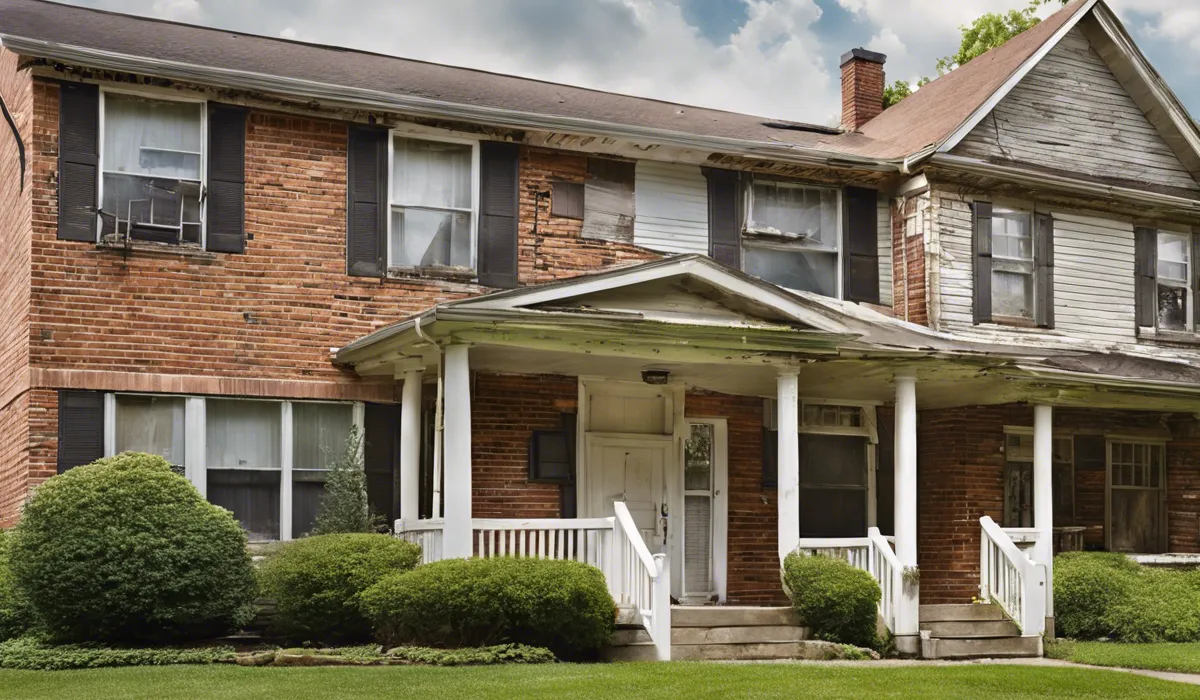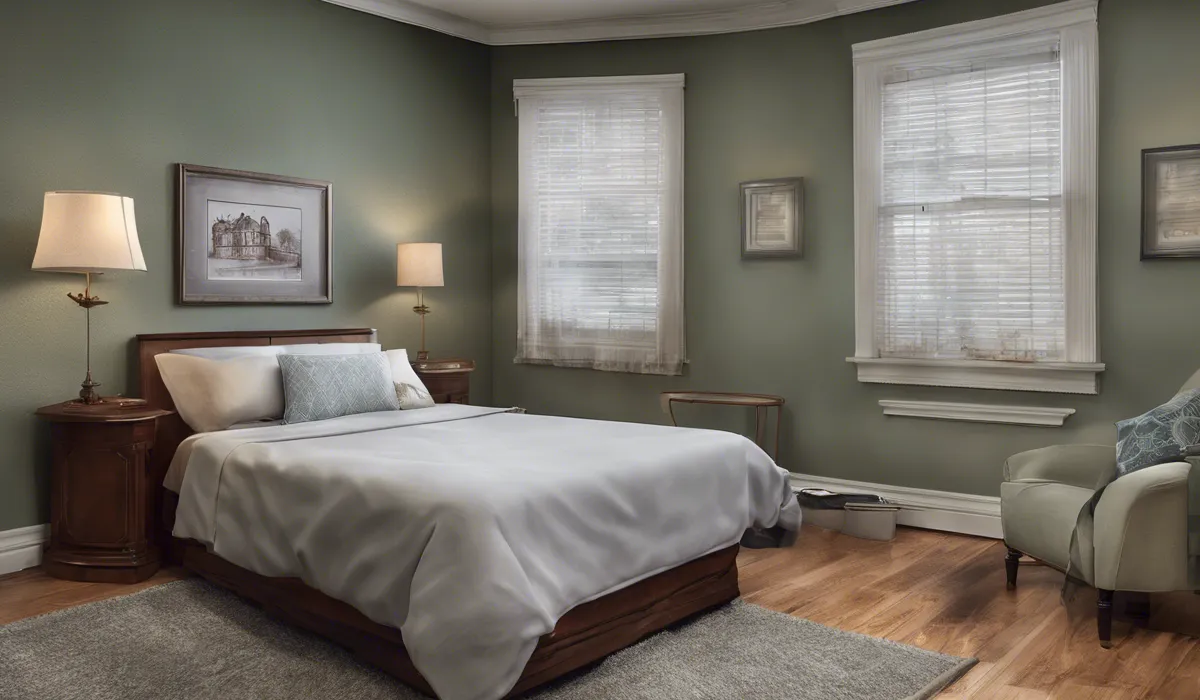Yes, you can sue your landlord for mold if it violates habitability standards and they’ve neglected remediation, potentially causing health issues or property damage. Legal action can seek compensation for harm and repair costs.
Legal Grounds for Suing a Landlord Over Mold Issues

Health Risks and Property Damage
Mold is more than an unsightly inconvenience; it poses serious health risks and can cause significant property damage.
For some people, exposure to mold can lead to symptoms such as coughing, sneezing, sore throats, and even severe allergic reactions or asthma attacks.
Long-term exposure may result in more serious health issues. Besides health concerns, mold can weaken building structures by breaking down the materials it grows on, leading to costly damages.
Tenant Rights and Landlord Responsibilities
Tenants have the right to live in a property that is safe and in good repair. Landlords are responsible for providing a livable environment, which includes addressing mold issues promptly.
Landlords should inspect their properties regularly and respond to tenant complaints about mold with appropriate action.
Breach of Warranty of Habitability
If mold makes a rental property uninhabitable, the landlord may be in breach of the warranty of habitability.
This legal concept requires that landlords provide tenants with a safe and healthy environment. A mold infestation can violate this warranty, giving tenants grounds to sue.
Constructive Eviction Due to Mold
Constructive eviction occurs when a rental property’s condition is so poor that the tenant is forced to leave.
If mold problems are not addressed and become unbearable, tenants may have no choice but to move out. This can be the basis for a legal claim against the landlord.
Negligence and Failure to Address Mold Problems
Landlords can be considered negligent if they fail to address mold problems after being informed.
Negligence means that the landlord did not take reasonable care to prevent mold growth or did not act quickly enough to remediate it once the problem was discovered.
State-Specific Laws and Regulations on Mold
Each state has its own set of laws and regulations regarding mold in rental properties.
Some states have specific statutes that address mold, while others rely on more general landlord-tenant laws.
It’s essential to understand the specific laws in your state before taking legal action.
Preparing to Sue Your Landlord for Mold

Documenting the Mold Problem
Start by thoroughly documenting the mold issue. Take clear photos and videos of all affected areas.
Keep a detailed record of when you first noticed the mold and any communication with your landlord about the problem. This documentation will be crucial evidence in your case.
Reporting Mold to the Landlord: Communication Records
It’s important to report the mold issue to your landlord in writing and keep a record of all correspondence. This can include emails, text messages, or certified letters.
These records show that you have notified the landlord and requested repairs, which is necessary for proving negligence.
Health Documentation: Doctor Visits and Medical Reports
If you or your family members have experienced health issues due to mold exposure, visit a doctor and get medical reports documenting your conditions.
These documents can link health problems to mold exposure and are essential for your case.
Gathering Evidence
In addition to your own documentation, gather evidence from others who have witnessed the mold problem.
This can include statements from neighbors, friends, or family members. The more evidence you have, the stronger your case will be.
Hiring Mold Inspectors or Environmental Health Experts
Consider hiring a professional mold inspector or environmental health expert to assess the mold issue.
They can provide an expert opinion on the severity of the problem and the risks it poses, which adds credibility to your claim.
Official Complaints and Demand Letters
Before taking legal action, it may be necessary to send your landlord an official complaint or a demand letter.
This letter should outline the problem, any health concerns, and what actions you expect the landlord to take. A demand letter can also serve as a final warning before you file a lawsuit.
Renters Insurance Policy Coverage for Mold Damage
Check your renter’s insurance policy to see if it covers mold damage. Some policies provide coverage, which can help with costs related to property damage or temporary relocation.
Insurance coverage can also influence the compensation you seek in a lawsuit.
The Legal Process of Suing Your Landlord

Small Claims Court vs. Higher Courts: Understanding the Differences
The venue for your lawsuit will depend on the amount of damages you are seeking. Small claims court is appropriate for smaller sums and typically does not require a lawyer.
For larger claims, you may need to file in a higher court, which often necessitates legal representation.
Finding a Lawyer
If your case is complex or involves a significant amount of money, finding a lawyer with experience in landlord-tenant disputes can be beneficial.
They can guide you through the legal process and increase your chances of a successful outcome.
Filing a Lawsuit
When you decide to file a lawsuit, you will need to prepare and submit the necessary documentation, which includes a complaint outlining your case and evidence supporting your claim.
Your lawyer can ensure that all paperwork is filed correctly and within the required time frame.
Mediation and Settlement Options
Before or during the court proceedings, there may be an opportunity for mediation, where a neutral third party attempts to help you and your landlord reach a settlement.
Settling out of court can save time and money for both parties.
Potential Defenses Landlords Might Use
Be prepared for your landlord to present defenses such as claims that the mold was caused by your actions or that they were not properly informed of the issue.
Knowing these potential defenses can help you and your lawyer counter them effectively.
Compensation and Remedies: What to Expect if You Win
If you win your case, you may be awarded compensation for medical bills, property damage, moving costs, or pain and suffering. In some cases, the court may also order the landlord to remedy the mold issue.
Retaliation Protection:
Retaliation by a landlord for taking legal action is illegal. This includes raising rent, decreasing services, or evicting you without cause.
Tenant protection laws exist to ensure you can exercise your rights without fear of retribution.
FAQs About Suing Your Landlord for Mold
Can I legally sue my landlord if I find mold in my rental property?
Yes, if the mold violates habitability standards and your landlord has failed to address it, you may have grounds to sue for damages and remediation costs.
What are the conditions required to sue a landlord for mold issues?
You must prove that the mold is significant enough to breach habitability standards, that the landlord was notified and neglected to fix it, and that it has caused health problems or property damage.
What kind of compensation can I seek in a lawsuit against my landlord for mold?
You can seek compensation for medical expenses, property damage, moving costs, and sometimes pain and suffering resulting from exposure to mold.
How do I document mold problems before suing my landlord?
Document mold issues with photographs, medical reports if health issues have arisen, communication records with the landlord, and professional mold assessments.
Is there a time limit for suing a landlord for mold exposure?
Yes, there is typically a statute of limitations for personal injury and property damage claims, which varies by state, so it’s important to act promptly.
Final Thoughts
If your landlord fails to address mold that compromises habitability or neglects remediation, resulting in health issues or property damage, you may have grounds to sue.
Legal action can be pursued to obtain compensation for any harm suffered and cover the expenses of necessary repairs.
